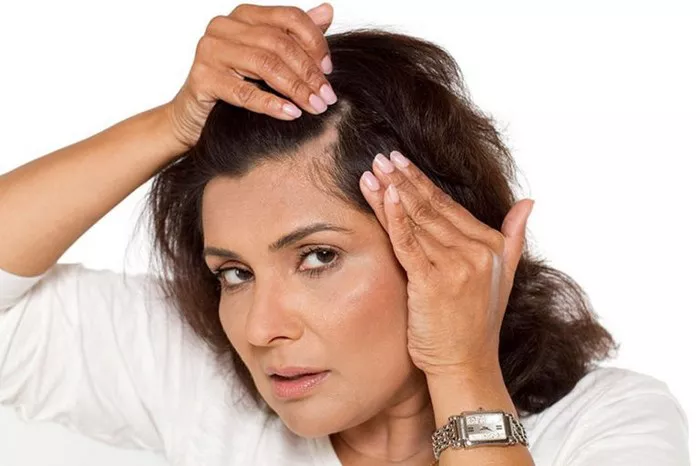Hair loss can be a distressing experience, affecting not only one’s appearance but also self-confidence and mental well-being. While there are numerous causes of hair loss, one often overlooked factor is hypothyroidism, a condition where the thyroid gland does not produce enough thyroid hormones. Thyroid hormones play a crucial role in regulating various bodily functions, including hair growth. In this article, we will explore the relationship between hypothyroidism and hair loss, discuss whether hair loss due to hypothyroidism is reversible, and provide actionable tips for managing and reversing this condition.
Understanding Hypothyroidism
Hypothyroidism is a common endocrine disorder characterized by an underactive thyroid gland. The thyroid gland, located in the neck, produces hormones that regulate metabolism, energy levels, and other vital processes in the body. When the thyroid gland does not produce sufficient amounts of these hormones, it can lead to a range of symptoms, including fatigue, weight gain, dry skin, and hair loss.
Symptoms of Hypothyroidism
- Fatigue and Weakness
- Weight Gain
- Dry Skin and Hair
- Hair Loss
- Cold Intolerance
- Constipation
- Depression and Memory Problems
- Muscle and Joint Pain
The Link Between Hypothyroidism and Hair Loss
Hair growth is a complex process regulated by various factors, including hormones, genetics, and environmental influences. Thyroid hormones, specifically thyroxine (T4) and triiodothyronine (T3), play a crucial role in hair growth and maintenance. When these hormones are deficient, it can disrupt the normal hair growth cycle, leading to hair thinning and loss.
How Hypothyroidism Affects Hair Growth
- Disruption of the Hair Growth Cycle: The hair growth cycle consists of three phases: anagen (growth phase), catagen (transition phase), and telogen (resting phase). Hypothyroidism can shorten the anagen phase and prolong the telogen phase, leading to more hair follicles entering the resting phase and eventually falling out.
- Impaired Nutrient Absorption: Thyroid hormones are essential for the absorption and utilization of nutrients. Hypothyroidism can impair nutrient absorption, depriving hair follicles of the necessary nutrients for healthy growth.
- Increased Sensitivity to Androgens: Hypothyroidism can increase sensitivity to androgens, particularly dihydrotestosterone (DHT), which can shrink hair follicles and lead to hair loss.
Is Hair Loss Due to Hypothyroidism Reversible?
The good news is that hair loss caused by hypothyroidism is often reversible with proper treatment and management. Addressing the underlying thyroid imbalance can restore normal hair growth and prevent further hair loss. Here’s what you need to know:
Diagnosis and Treatment
- Thyroid Function Tests: If you suspect hypothyroidism, consult a healthcare provider for a comprehensive evaluation. Blood tests, such as TSH (thyroid-stimulating hormone), T4, and T3 levels, can confirm the diagnosis.
- Thyroid Hormone Replacement Therapy: The primary treatment for hypothyroidism is thyroid hormone replacement therapy, typically involving synthetic thyroid hormones like levothyroxine. This medication helps restore normal thyroid hormone levels and alleviate symptoms, including hair loss.
- Regular Monitoring: Once treatment begins, regular follow-up appointments and blood tests are necessary to monitor thyroid hormone levels and adjust the dosage as needed.
Additional Strategies for Reversing Hair Loss
While thyroid hormone replacement therapy is the cornerstone of treatment, there are additional strategies you can adopt to support hair growth and overall health.
Nutritional Support
Balanced Diet: Eat a balanced diet rich in vitamins and minerals essential for hair health. Focus on foods high in:
Protein: Lean meats, fish, eggs, and legumes
Iron: Red meat, poultry, fish, beans, and leafy greens
Zinc: Oysters, beef, pumpkin seeds, and nuts
B Vitamins: Whole grains, bananas, and potatoes
Omega-3 Fatty Acids: Fatty fish, flaxseeds, and walnuts
Supplements: Consider supplements if you have specific deficiencies. Consult your healthcare provider before starting any new supplements.
Scalp Care
- Gentle Hair Care: Use gentle shampoos and conditioners, and avoid harsh chemicals and heat styling tools. Be gentle when washing and brushing your hair to prevent breakage.
- Scalp Massages: Regular scalp massages can improve blood circulation and stimulate hair follicles. Use essential oils like rosemary, lavender, and peppermint for added benefits.
Stress Management
- Relaxation Techniques: Practice stress-reducing techniques such as meditation, yoga, and deep breathing exercises. Chronic stress can exacerbate hair loss and other symptoms of hypothyroidism.
- Adequate Sleep: Ensure you get enough sleep, as lack of sleep can increase stress levels and impact hair health.
Exercise and Physical Activity
- Regular Exercise: Engage in regular physical activity to improve blood circulation, reduce stress, and support overall health. Cardiovascular exercises, strength training, and yoga are all beneficial.
- Moderation: Avoid overexertion, as excessive exercise can be counterproductive and increase stress levels.
Conclusion
Hair loss due to hypothyroidism is a reversible condition with the right diagnosis and treatment. By addressing the underlying thyroid imbalance and adopting a holistic approach to health, you can restore normal hair growth and improve your overall well-being. If you suspect hypothyroidism, consult a healthcare provider for a thorough evaluation and personalized treatment plan. With patience and persistence, you can regain your confidence and enjoy healthy, vibrant hair.
- When Hair Falls out After Hair Transplant
- Is Hair Falling out a Sign of Anemia
- When Do You Start Losing Hair During Chemo?


